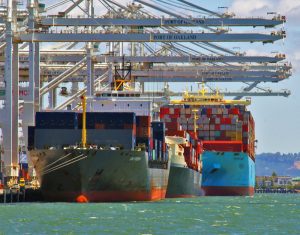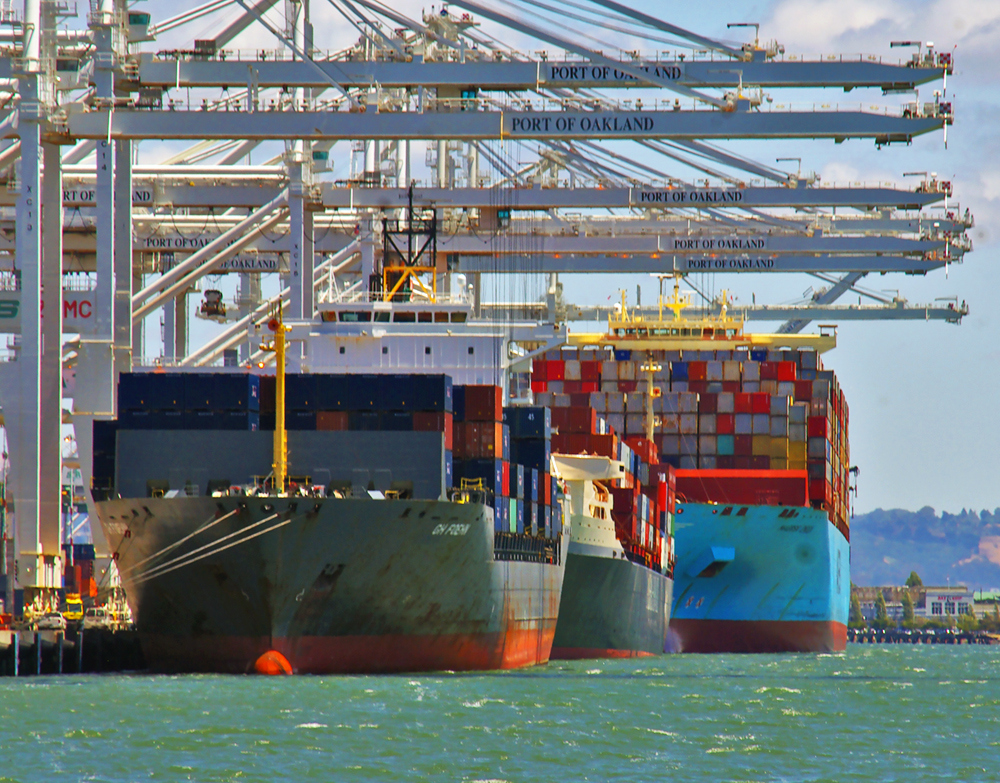
If three U.S. congressmen have their way, legislation they’ve recently introduced would pave the way for American merchant marine and military vessels, including those in the Jones Act fleet, to bypass the long vessel queues and congestion at major U.S. ports, particularly those on the West Coast.
The legislation, HR 8243, also known as the “American Port Access Privileges Act,” was introduced in the House of Representatives on June 29. It would allow U.S. exports to skip to the front of the line at American seaport terminals.
“This legislation would put American exports at the front of the line at our ports to support American businesses and workers,” one of the legislation’s sponsors, Rep. John Garamendi, D-CA said. “Congress must restore fairness ay our ports for American exporters to help reduce the United States’ longstanding trade imbalance with countries like China.”
“Foreign exporters’ access to the American market and our consumers is a privilege, not a right,” said Garamendi, who sits on the House’s Armed Forces Committee. “Cargo ships looking to offload foreign-made products and profit off West Coast ports must provide opportunities for American exports in return.”
The bill’s other sponsors are Reps. Mike Thompson and Jim Costa, both D-CA. Costa said that the legislation would help reduce bottlenecks on the docks.
“Supply chain disruptions are hurting California farmers and exporters like never before,” he commented. “We need to remove bottlenecks and mitigate congestion to carry out American exports.
“I’m proud to introduce this legislation … to boost American exports,” he said.
Among the things the American Port Access Privileges Act would do is:
- Codify the current preferences for military, Jones Act and other U.S.-flagged vessels at major American ports, such as those in Long Beach and Los Angeles;
- Establish a secondary berthing preference for ocean-going vessels calling at multiple U.S. ports in order to reward ocean carriers that service both importers and American exporters by moving those vessels to the front of the queue for loading and unloading.
- Require that ships carrying cargo for export report cargo bookings to port operators at least a week in advance, and;
- Authorize the U.S Transportation Bureau to collect data on berthing and cargo practices at U.S. ports in order to evaluate ocean carriers’ practices, as well as the impacts of preferential berthing.
Both Costa and Garamendi represent areas that are reliant on agriculture exports. So far, their legislation has been endorsed by the Agriculture Transportation Coalition (AgTC) and the National Milk Producers Federation.
It’ll be interesting to see how much traction the legislation gets, considering that opponents could argue that letting one set of shippers always remain at the head of the queue would theoretically increase goods import delays.
We’ll keep track of the legislation for you and will report the important updates as they occur.
Thanks for reading.
Managing Editor Mark Nero can be reached at mark@maritimepublishing.com

